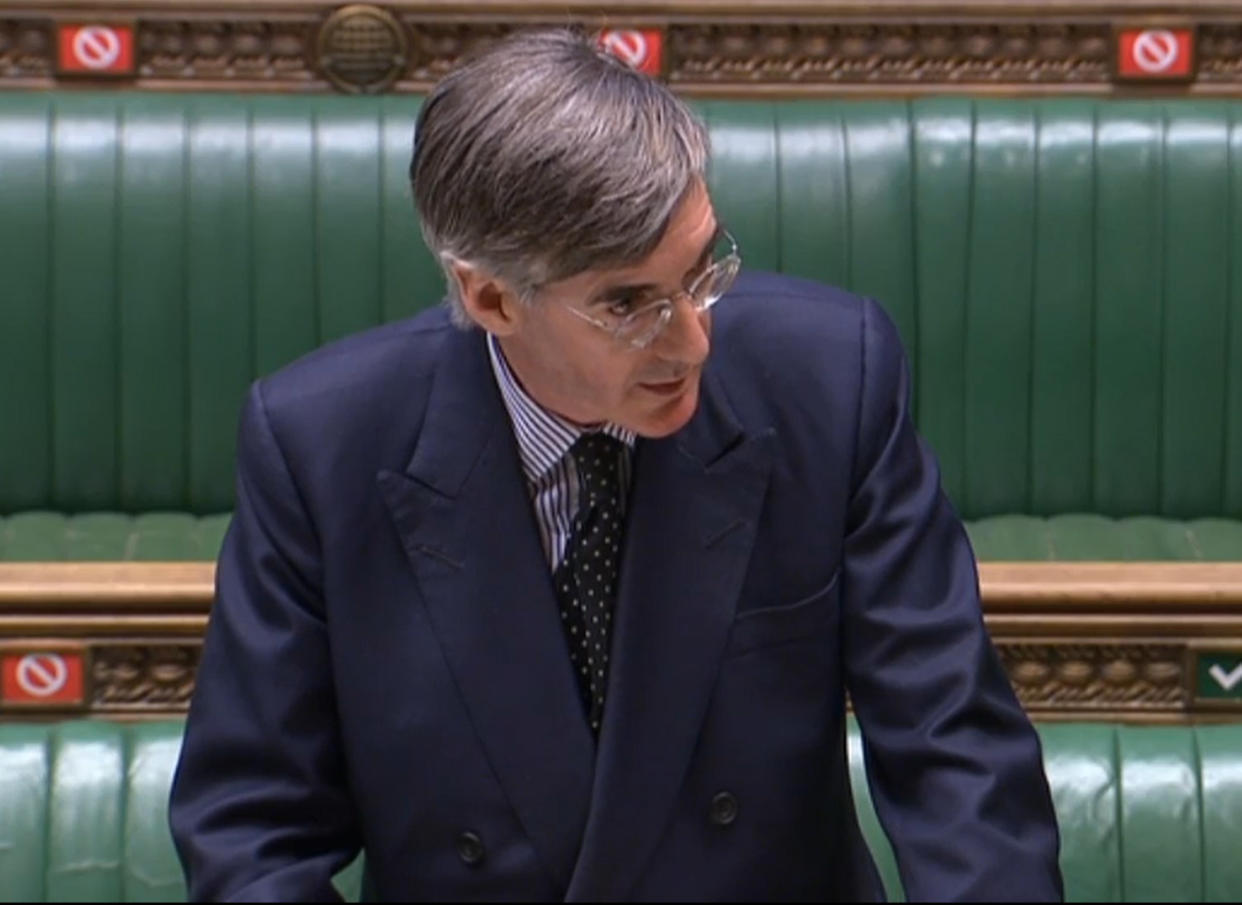Jacob Rees-Mogg calls anti-vaxxers 'nutters' as he defends government communications spending


Jacob Rees-Mogg has labelled anti-vaxxers “nutters” as he defended the spending on communications as necessary to “reassure people” about the safety of vaccines.
Speaking at business questions the leader of the House of Commons was responding to criticism aimed at Kate Bingham, the head of the government’s coronavirus vaccine taskforce.
The shadow leader of the Commons Valerie Vaz called for a public inquiry into reports that Bingham allocated £670,000 to be spent on public relations.
Labour has previously said the government has “serious questions” to answer over the allegation.
In response to Vaz’s question, Rees-Mogg said: “There are a few nutters around, Mr Speaker – I’m sure you’ve never met them – who are anti-vaxxers, and they go around spreading rumour and causing concern to people.
“And we need to put out the true information to reassure people and that is a reasonable and a proper thing to do.
“And I think the attacks on Kate Bingham are discreditable and unpleasant.”
Watch: Jacob Rees-Mogg describes anti-vaxxers as 'nutters'
Rees-Mogg also praised Bingham saying she “deserves credit, plaudits and praise, paeans of praise” for all the work she has done without drawing a salary.
He said: “She has brought her energy, her enterprise, to ensure that we are one of the best placed countries to have supplies of the vaccine when it comes through.”
Earlier Vaz said she would be interested to know the role of the special communications advisors that she noted were based in the Department for Business, Energy and Industrial Strategy, which already has 100 comms staff.
Read more: NHS Test and Trace sees highest cases ever after nearly 150,000 weekly positive tests
Vaz continued: “But if it is something about a vaccine, I’d rather (deputy chief medical officer) Dr (Jonathan) Van-Tam tell me about it than a public relations so-called expert.”
Rolling out vaccines nationwide will be key to bring an end to the coronavirus pandemic and ensuring life gets back to normal.
It has been estimated over 70% of the population will need to be immunised in order to get rid of the virus all together.
Getting to that level will not be easy, on top of the logistical challenges presented by the need to vaccinate so many people there is also a large amount of skepticism held by the population over whether the vaccine will be safe.
A study by King's College London and Ipsos MORI in August found only 53% of the population of the UK would be willing to take a coronavirus vaccine when it became available.
The study found vaccine skepticism was lowest amongst the elderly which is fortunate as they will be the first group to be vaccinated.
England’s deputy chief medical officer Professor Jonathan Van-Tam told a Downing Street press conference on Monday: “Vaccine misinformation has been out there ever since the first vaccines were made and it is exactly that, misinformation, and I don’t propose to give it any further airtime.”
Prime minister Boris Johnson has said the anti-vax argument “holds no water”.
Coronavirus: what happened today
Click here to sign up to the latest news and information with our daily Catch-up newsletter


